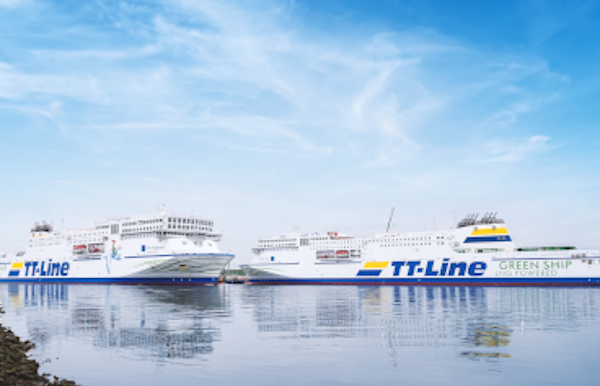Life Below Water
Significant prevention and reduction of marine pollution

Our commitment
We are committed to combining forward-looking strategies with broader initiatives to reduce emissions and pollutants from our vessels. In this way, TT-Line will remain committed to our mission of minimizing our impact on the fragile marine life and ecosystems that thrive beneath the surface of our oceans.
The protection and sustainable use of our oceans and their resources are essential for sustainable development. In line with this commitment, we have set ourselves the goal of preventing and significantly reducing marine pollution.
This includes for example the commissioning of our new Green Ships, using silicone coating as well as waste management among our employees.
TT-Line's connection to the Baltic Sea
Inspired by our deep connection to the Baltic Sea, we are constantly striving to develop innovative solutions to preserve the fascinating diversity of its ecology. Our commitment drives us to create sustainable methods that enable us to protect the incomparable beauty and unique diversity of the Baltic Sea and preserve it for future generations.


Our Green Ships
With our new Green Ships, the use of sulfur-free LNG means that local emissions such as sulfur oxides and fine dust are almost completely avoided, nitrogen oxide emissions are significantly reduced and CO2 emissions are reduced by another 22%.
Use of EAL oil
The new Green Ships Peter Pan and Nils Holgersson are using EAL oil (“Environmentally Acceptable Lubricant”) in the gears of the bow thrusters and in the shaft line seal. As this equipment has direct interfaces between machinery and the sea water it is important to avoid even the slightest pollution. EAL oil provides another safety barrier as in the case of a spillage it does not cause harm to the sea water or organisms.

Air Seal Application
The new Green Ships Peter Pan and Nils Holgersson are equipped with air seal technology for the shaft lines. The shaft bearings, which are positioned at the aft end of the ships hull, and which lead the propulsion shaft to the outside of the vessel, are lubricated with oil. As it must be ensured that no oil pollutes the sea water, it is vital to maintain the shaft seals in a good condition. The air seal technology offers another safety barrier as it separates the oil lubricated chambers of the seal from the open sea by another air pressurized chamber. In case of a leakage the air pressure will push any oil to the inside of the vessel, avoiding a spillage into the sea.

Ballast Water Treatment System
The majority of the TT-Line fleet is already equipped with Ballast Water Treatment Systems. Those systems are using intensive UV radiation (free of chemicals) to sterilize the ballast water which is taken into the vessel or pumped out of the vessel. The reason for this treatment is to prevent the spread of invasive marine life from one biosphere into another biosphere. The treatment systems contribute to safe and balance the marine life in the sensitive Baltic region.

To the next UN Sustainable Development Goal:
- UN Sustainable Development Goals
- Gender Equality
- Decent Work and Economic Growth
- Industy, Innovation and Infrastructure
- Responsible Consumption and Production
- Climate Action
- Life Below Water

